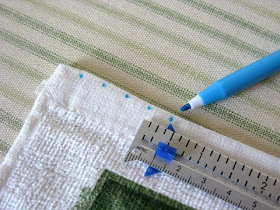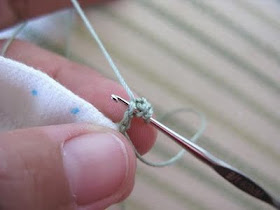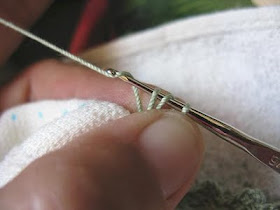These are burp cloths, made with Gerber pre-fold diapers. The nice thing about crocheting on these diapers is that I don't have to use the awl to punch holes (except in the middle, where the fabric is so thick.) The diaper fabric is woven loosely enough to allow the tiny steel hook to easily push through. This just saves some time, which I always like. The cotton thread is usually very colorfast, even with bleach, so there is no worry about transient dye in the wash.
I like to use this edging on pillowcases also. I have lots of patterns for edgings that are more complicated, but these are often put off because of time. I always seem to need a nice gift now! The one thing I love about this edging is that it is so fast - one round and I'm done. But it is still so pretty and adds just the right handmade touch to a gift. These print pillowcases were part of a sheet set given as a wedding gift. I opened the original package to get at the pillowcases and then re-wrapped the set with ribbon. I could also have put the edging across the top sheet, but I didn't have time. I also like to give a set of plain white pillowcases along with a set of nice pillows. Everyone needs extra pillows in the house.
The zig-zag edging is so useful for embellishing all kinds of things in a hope chest or in your household. I hope you'll give it a try.



















































